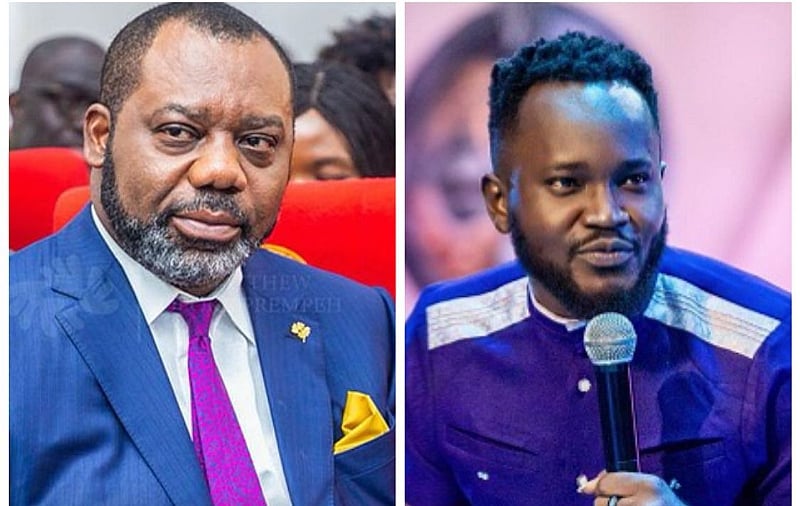Dr. Matthew Opoku Prempeh, the 2024 running mate for Ghana’s opposition New Patriotic Party (NPP), and popularly known as Napo, has responded with a blend of amusement and a touch of shrewdness to a comedy show centered around his public pronouncements. The show, titled “Don’t Forget Napo,” was orchestrated by Ghanaian comedian OB Amponsah and highlighted some of Napo’s more controversial statements made during the run-up to the 2024 elections. These included a perceived slight against Ghana’s founding father, Dr. Kwame Nkrumah, with the phrase “your Nkrumah,” a reference to the late President John Atta Mills as “the dead one,” and an incident where he mentioned former President John Mahama’s name while endorsing an NPP parliamentary candidate. Amponsah playfully suggested that while the NPP’s presidential candidate, Dr. Mahamudu Bawumia, was actively gaining votes, Napo’s pronouncements might be inadvertently costing the party some support.
Napo’s reaction to the comedian’s performance was multifaceted. He publicly expressed gratitude to OB Amponsah for inadvertently boosting his popularity through the show. He acknowledged the comedian’s talent for filling venues with audiences drawn to the performance centered around him, viewing it as free publicity. However, beneath the veneer of appreciation, Napo also revealed a more pragmatic approach. He playfully announced his intention to have his legal team contact OB Amponsah to explore the possibility of receiving a share of the show’s proceeds, jokingly citing his current unemployment status as justification. This move, seemingly made in jest, cleverly intertwined humor with a subtly serious point about the potential commercial value attached to public image and its use in entertainment.
The incident underscores the evolving relationship between politics and entertainment, particularly in the age of social media and viral content. Politicians, once largely confined to formal platforms, now find themselves increasingly under the comedic lens, their public pronouncements and actions becoming fodder for satire and humor. Napo’s response reflects a growing awareness among politicians of the need to engage with this evolving landscape, not just by deflecting or dismissing it, but by participating in the narrative and even attempting to leverage it to their advantage.
Napo’s seemingly lighthearted request for a share of the proceeds also highlights a broader discussion about the use of public figures’ images and personalities for commercial gain. While the legal grounds for such a claim are likely tenuous in this particular instance, it raises questions about the boundaries between parody, free speech, and intellectual property. In an era where public figures are increasingly becoming brands, the line between their public persona and their private lives blurs, creating complex legal and ethical dilemmas. Napo’s actions, while framed in humor, touch upon these very real issues in a way that invites further discussion and consideration.
Furthermore, the incident provides a glimpse into the dynamic between political figures and comedians. Comedians often play a crucial role in holding those in power accountable, using humor to critique and challenge their actions and pronouncements. Napo’s reaction, rather than being purely defensive, embraces the humor and even seeks to turn it to his advantage. This approach, while possibly calculated, could be interpreted as a recognition of the power of comedy to shape public perception and the importance of engaging with it rather than attempting to suppress it.
Ultimately, the interaction between Napo and OB Amponsah serves as a microcosm of the changing landscape of political discourse. It highlights the increasing influence of comedians in shaping public opinion, the blurring lines between politics and entertainment, and the strategic adaptations politicians are making to navigate this new reality. Napo’s response, blending humor, self-awareness, and a dash of playful legal maneuvering, showcases a nuanced understanding of the power of comedy and the need to engage with it, even when it comes at one’s own expense. It reinforces the notion that in the modern political arena, even seemingly lighthearted exchanges can carry significant weight and contribute to the ongoing conversation about public image, political satire, and the right to free expression.














